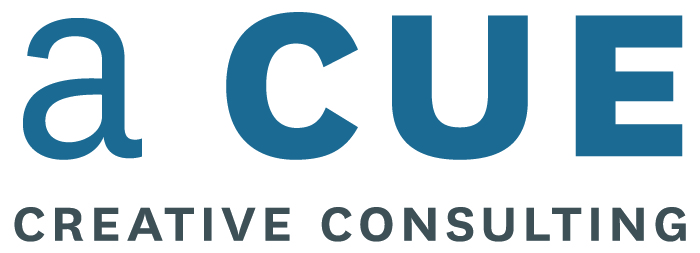Public Speaking for Business Professionals
As the CEO of a growing business, we learn very quickly that the work that is required of us goes way beyond the scope of the original concept or idea that we created and formed our business around. Initially, when we began we were wearing the hat of an accountant, administrator, marketer, PR spokesperson, and much more. Now that we are CEO, we have learned to delegate those roles to others, and our primary job is to be the visionary and be the face of the organization we are leading. One of the most important, and most feared aspects of being the face of a company is the public speaking component. From networking to presentations and proposals in meetings to public speaking gigs – all of these activities help to further your sales by building up your credibility and visibility. So, how do you overcome the fear ( which is quite natural of course) of doing these things and become an experienced expert at it?
I have compiled the top 10 things to focus on when you are preparing for a public presentation of any kind. These tips I have been written from my experience as a CEO, and someone who has had training for performance that started in my 20’s with acting, singing, and as a musician. I have also done numerous media appearances and many, many other on-camera and stage presentations and proposals. Through my combined experience in show biz and business, I am happy to offer these key tips to help you become confident and more sure of yourself in these situations:
- Nervousness Is Normal and Expected. Practice and Prepare!
Everyone feels the fluttering in their stomach, pounding heart, and sweaty trembling hands. This is NORMAL. This means you CARE, so it is a good thing. Remember not to associate these feelings with the sense that you are a failure, or not good at this, or that you’ll make a fool of yourself. Nerves are good and will ensure that you are alert, aware, and invested in doing your best.
The best way to overcome intense anxiety is to be well prepared and to practice, practice, practice. The more public speaking you do, the less intimidating it will be. Videotape your practice runs, get a friend to watch you and allow yourself to stumble and make that an acceptable part of your speech since it is – no one is perfect and if you practice not being perfect, you’ll accept and support yourself better when the time comes to do the real speech.
- Know Your Audience. Your Presentation Is For Them.
Before you write and prepare your speech remember who the message is intended for. You may have the greatest script and love the words you’ve used, but if your audience doesn’t get it, it doesn’t matter how brilliant it is. Learn as much as you can about your audience beforehand and craft your presentation specifically for them. This will help you determine your choice of words, level of information needed, organization pattern, and if quotes and motivational statements are good, or better left out.
- Organize Your Material in the Most Effective Way to Meet the Goal of Your Presentation.
Create the journey of your presentation. It is like a framework that will be the structure of your speech. Write down the topic, the general purpose, then the specific purpose, the central idea, and main points. Make sure you capture the audience’s attention in the first 30 seconds by being specific, clear on your content and your audience.
- Look for Feedback and Roll with It.
Stay focused on the audience. Rather than taking a wide view and seeing everyone at once – which can overwhelm you as well – concentrate on one person at a time and slowly move your eyes through the room as you speak. Read responses, but don’t read too much into them. Watch for reactions, adjust your message if needed, and just remain flexible. This is a conversation, so remember to approach it as such. If you only deliver a canned, over-rehearsed and scripted speech without engaging with your audience, you will lose even your most loyal fans. Part of a good speech is the ability to maintain the conversation, the dialogue with the group in real-time.
- Let Your Personality Come Through. Be YOU!
Be yourself, don’t become a talking head—in any type of communication. You will establish better credibility if your personality shines through, and your audience will trust what you have to say if they can see you as a real person. Being authentic is the best strategy there is, in fact, it is the only way to be in any situation, and during a speech is no exclusion – this is where it is most important. Be you.
- Use Humour, Tell Personal Stories, and Use Interesting Language.
Inject a funny anecdote in your presentation, and you will certainly grab your audience’s attention. Audiences generally like a personal touch in a speech. A story can provide that. But, only do this if it comes naturally to you. Don’t TRY to be funny – remember point #5. Be you.
- Don’t Read Unless You Have to. Work from an Outline.
Reading fully from a script or slide fractures the interpersonal connection. By maintaining eye contact with the audience, you keep the focus on yourself and your message. A brief outline on cue cards or on PowerPoint slides can serve to jog your memory and keep you on task. Practice your presentation from the beginning using outlines only.
- Use Your Voice and Hands Effectively, but Naturally. Omit Nervous Gestures.
Nonverbal communication carries most of the message. Good delivery does not call attention to itself but instead conveys the speaker’s ideas clearly and without distraction. If you need to practice this, do so. Use a video camera and look for any continuous nervous gestures, aim to eliminate them. A common verbal nervous gesture is ‘um’ in between sentences. Aim to eliminate this phrase from your presentation by ‘pausing’ until you’ve gathered your thoughts, rather than uttering ‘um’. You’d be surprised how often this phrase is used and how powerful a distraction it can become. A simple silent pause is effective and doesn’t distract.
- Grab Attention at the Beginning, and Close with a Dynamic End.
Do you enjoy hearing a speech start with “Today I’m going to talk to you about blah blah blah”? Most people don’t. Instead, use a startling statistic, an interesting anecdote, a fabulous quote, or concise quotation or even a little singing if you’re so inclined. Grab your audience’s attention the minute you enter centre stage. Conclude your speech with a summary and a strong statement that your audience is sure to remember.
- Use Audiovisual Aids Wisely.
Too many can break the direct connection to the audience, so use them sparingly. They should enhance or clarify your content or capture and maintain your audience’s attention. Remember the KISS concept. Keep It Simple Silly.
Practice Does Not Make Perfect
Good communication is never perfect, and nobody expects you to be perfect. However, putting in the requisite time to prepare will help you deliver a better speech. You may not be able to shake your nerves entirely, but you can learn to minimize them. Perfection does not exist, so the more you can embrace this and just ‘roll with it’ and be in the moment, the more you will relax. It is all about trusting yourself and you’ll learn to trust yourself the more you do this. Believe you’ve got everything you need – if something happens, so what, just pick up, make a joke, skip a line – whatever. Practice makes permanent and builds new pathways in your mind, so you can learn to relax and be you no matter where you give a speech and what the content is. Just be YOU!
Bonus Tip: “Whenever I trip up, get extra nervous, make up words or otherwise do something weird and wonderful – instead of trying to ignore it and avoid it, I briefly own it and give attention to it so that the audience is aware that I am aware and forgive myself – often laugh at myself. The audience will always mirror back what your experience is. If you try to be perfect and fail and nervously scramble about, your audience will feel uncomfortable with you and be less forgiving. If you aim to be you and relax, your audience will do the same and just enjoy your presentation. Always OWN it, even the stumbles, especially the stumbles. Humans want to see other Humans – we’re all imperfect and when we embrace that, we focus on what really matters – the passion and message in your presentation” ~ Kaare Long
If you would like some one- on- one coaching to ready yourself for an upcoming public speaking gig, presentation, film, or media appearance, please fee free to contact me to inquire about fees and how I can support you to execute with confidence so you look and feel professional and prepared.
- Signs of Disrespect | Boundaries in Business - October 25, 2021
- Top 5 Qualities of a Good Leader [VIDEO] - October 22, 2021
- Essential Skills for the CEO of Today - September 17, 2021






